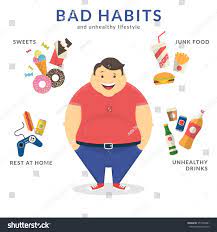Why Are Heart Attacks on the Rise in Young People?
There’s good news and bad news. Although Americans are suffering fewer heart attacks as a whole, the rate of heart attacks for people under 40 is increasing.
For the last several decades, aging has been established as one of the biggest risk factors for attacks, typically affecting men 50+ and women 65+. Now, people in their 20s, 30s, and 40s are more often falling victim to these cardiovascular attacks.
Cause: lifestyle, diabetes

“There are a few reasons why we’re seeing the rise of attacks in young people,” says cardiologist Luke Laffin, MD. “But one of the biggest risk factors is the increasing incident of type 2 diabetes.”
Contributors to type 2 diabetes include:
- Dietary choices such as exposure and access to ultra-processed food.
- Weight and obesity.
- Sedentary lifestyle and decreased physical activity.
Primordial prevention: how early is early enough?
Heart experts always thought about primary and secondary prevention when it comes to heart attacks, Dr. Laffin says. That’s trying to prevent the first heart attack and then trying to prevent the second heart attack.
Primordial prevention also includes education about what behaviors put you at risk for cardiovascular disease. These include:
- Obesity
- Poor diet and lack of exercise.
- Type 2 diabetes.
- High blood pressure.
- High cholesterol.
- Smoking.
- Family history of cardiovascular disease.
What if you’re at risk of an attack?

Heart attacks can happen to anyone – but the risk is especially high when genetics come into play. Primordial and primary prevention is crucial for those with a family history of heart disease.
Your hereditary risk of heart disease is defined by having a first-degree male relative (like your father, brother or son) under the age of 55 with attack or stroke history, or a first-degree female relative (like your mother, sister or daughter) under the age of 65 with attack or stroke history.
Guidelines recommend that people ages 20 to 39 without hereditary risk have their cardiovascular health assessed every four to six years.
For those that have a genetic risk, it’s critical to be engaged in your health and speak with your doctor early.











